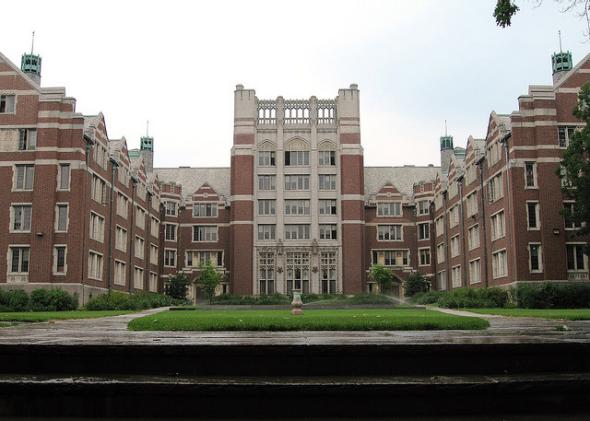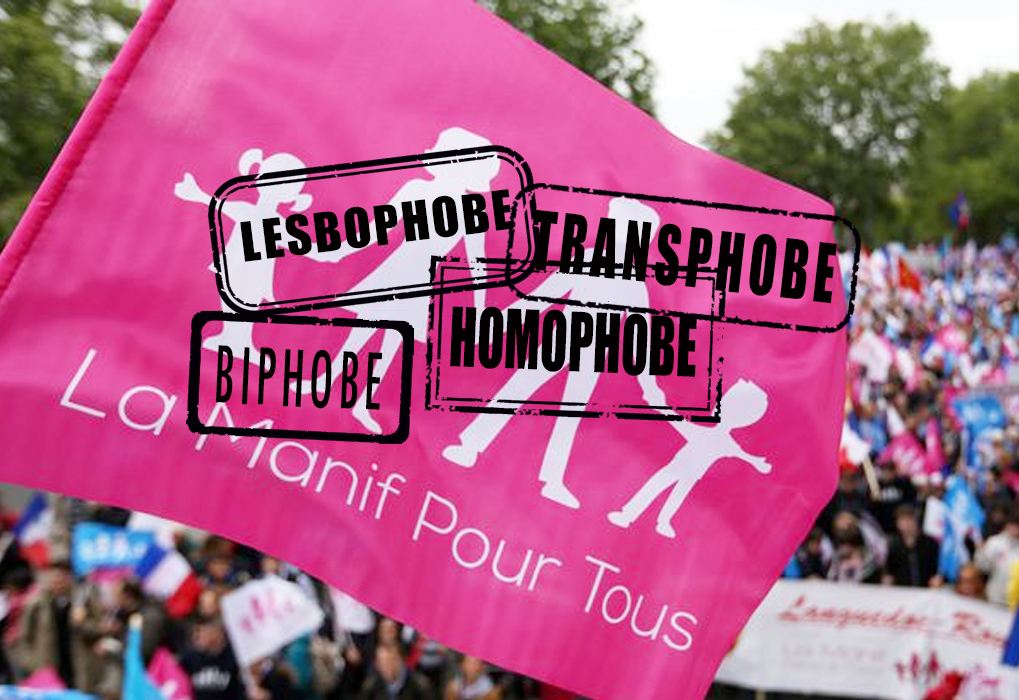>> Wellesley’s Decision to Admit Transgender Women Is Smart and Just
«Wellesley étudiera désormais la possibilité d’une admission pour toute personne qui vit comme une femme et s’identifie systématiquement comme une femme». Révolution dans l’université privée féminine de sciences humaines Wellesley College, qui a notamment accueilli Hillary Clinton à la fin des années 60: les étudiantes transgenres (hommes devenus femmes) auront donc désormais le droit de déposer leur candidature, qui sera ensuite examinée comme n’importe quelle autre.
Cette initiative, annoncée par la présidente de l’université H. Kim Bottomly et la présidente du Conseil d’Administration de l’établissement Laura Daignault Gates, fait suite au travail d’un comité chargé d’étudier les enjeux éducatifs, sociaux, légaux et médicaux soulevés par la question de l’identité de genre. Cette nouvelle politique devrait être mise en place lors du prochain cycle d’admission de la promotion 2020.
De plus en plus d’établissements féminins acceptent les personnes transgenres
L’initiative a cependant ses subtilités, rapporte le Boston Globe. Wellesley College acceptera désormais les personnes nées femmes qui se reconnaissent femmes, les personnes nées hommes qui se reconnaissent femmes et les personnes nées femmes qui ne s’identifient ni comme femmes ni comme hommes. En somme, l’établissement ne sera plus réservé aux personnes nées femmes, mais aux personnes «s’identifiant comme femmes».
Seules les personnes qui s’identifient comme hommes ne seront pas éligibles. Dernier cas de figure: les élèves qui, durant leur scolarité, ne se considéreraient plus comme femmes pourront rester à Wellesley jusqu’à leur diplôme ou, si elles le souhaitent, seront aidées par l’université à être transférées ailleurs.
Wellesley College n’est pas le seul établissement à s’être lancé dans cette démarche. Mills College en Californie, Simmons College et Mount Holyoke College dans le Massachussets permettent également aux étudiants transgenres d’intégrer leurs rangs.
>> Wellesley College will begin admitting transgender women, the school announced Thursday.
Starting with the Class of 2020, the college “will consider for admission any applicant who lives as a woman and consistently identifies as a woman,” Wellesley’s President H. Kim Bottomly and Board of Trustees Chairwoman Laura Daignault Gates wrote in a letter to alumnae.
With this decision, Wellesley joins Bryn Mawr, Mount Holyoke, Mills, and Simmons College among women’s colleges that welcome applications from transgender female students
Women’s colleges were founded to educate a group that had long been marginalized from the traditional ranks of academia. And since then, these institutions have produced generation after generation of strong women—including Gloria Steinem, Madeleine Albright, Yolanda King, Katharine Hepburn, Hillary Clinton, and Emily Yoffe.
Today, when American women enroll in college in higher numbers than men, these institutions still serve a vital purpose in educating women (and some men) sheltered from the pressures and influences of a society overwhelmingly run by straight, white, cisgender men.
For many students, the classrooms of Wellesley or Smith or Bryn Mawr are the first place they feel at ease trying to solve a tricky math problem or voicing an opinion in a philosophy seminar. At these colleges, young people who were too scared or intimidated to speak up elsewhere—or who were silenced entirely—find their voices. Voices they take with them after graduation into their respective fields.
These benefits need not be limited to those born into a female body.
I’m hopeful that Wellesley’s move signals a shift for women’s colleges, which are already under pressure on numerous fronts. With Sweet Briar College closing at the end of the school year, the future viability of these institutions is in question.
But women’s colleges will not survive by hunkering down and clutching to tradition.
In 2013, my alma mater, Smith College, rejected Calliope Wong, a young woman from Connecticut, because her financial aid application materials identified her as male. For too long, Smith and other women’s colleges have allowed a checkbox on an applicant’s birth certificate to carry more weight than strong self-declarations of identity.
Women’s colleges need to embrace this opportunity to become a welcoming and safe space to educate all women.
For once, this Smithie is hoping my college follows Wellesley’s example.
Par Aude Bariéty


















